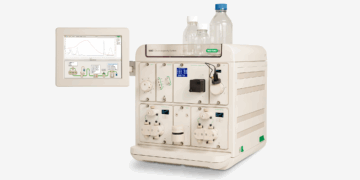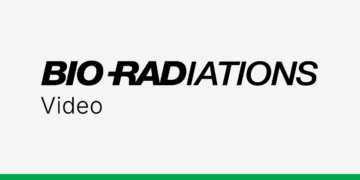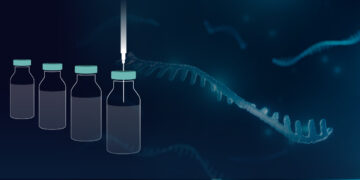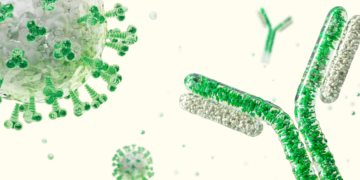
Automated Multicolumn Monoclonal Antibody Purification
The current gold standard in monoclonal antibody purification for most researchers is affinity purification with Protein A or G followed by size exclusion chromatography (SEC). Although robust and highly effective, this workflow does have critical pain points and inefficiencies, leaving researchers to feel that they must oversee every step of their workflow, not leaving their chromatography system unattended for more than a few minutes.

The Pioneer Antibody Discovery Platform: Clinical-Quality Lead Candidates in Industry-Leading Timelines
Biotherapeutic antibody discovery is inherently challenging. Amongst the clinically proven technologies for antibody discovery is phage display — a technique utilized by one of the most recent and innovative solutions on the market: the Pioneer Antibody Discovery Platform.

mAb Purification Process Development Using Mixed-Mode Resins — The DOE Approach
In this case study, process chromatography application scientist Artur Stanczak presents a two-step mAb purification workflow, comparing multimodal resin alternatives used for the polishing step that occurs after protein A capture. The design of experiment (DOE) data presented characterizes the behavior of multiple mAbs with two different mixed-mode resins. The importance of scale, prior knowledge, and the stage of development will also be discussed. The results of both mixed-mode resin studies and the different DOE approaches demonstrate the ability to achieve high-purity products.

Achieving True Excellence in RNA Therapeutic Development
The realm of druggable targets has expanded significantly with the advent of mRNA therapeutics. Scientists require exceptional accuracy and confidence to adequately characterize these therapeutics and their anticipated effects. To this end, Droplet Digital PCR (ddPCR) technology has proven invaluable. With unparalleled precision and absolute quantification, Droplet Digital PCR is revolutionizing the field of mRNA therapeutic development and manufacturing.

mAb Purification Process Development Using Mixed-Mode Resins — The DOE Approach
This webinar shows a 2-step mAb purification workflow and compares multimodal options for polishing. See how these methods can achieve high-purity products.

Measure Neutralizing Antibodies against Any SARS-CoV-2 Variant in 1 Day
Current vaccines against severe acute respiratory syndrome coronavirus 2 (SARS-CoV-2) have reduced the severity of the coronavirus disease 2019 (COVID-19). However, the drastic and quick evolution of the virus poses challenges to the development of durable and efficacious therapeutics for vaccine and antibody developers alike. See how the Bio-Plex Pro Human SARS-CoV-2 Neutralization Antibody Custom Assay Developer Kit speeds up the qualitative measurement of neutralizing antibodies (NAbs) against new SARS-CoV-2 variants, removing a roadblock in COVID-19 therapeutic development.

A Pioneering Approach to Biotherapeutic Antibody Discovery
Immunotherapy has revolutionized cancer treatment, yet the drug discovery process to develop new biotherapeutic antibodies remains arduous. However, significant advances in antibody technology such as phage display have enabled fully human antibodies to be developed from animal-free libraries for just about any antigen.

Learn to Develop a New Multiplex SARS-CoV-2 Variant Neutralizing Antibody Assay in a Single Day
Develop new assays in just one day with the Bio-Plex Pro Human SARS-CoV-2 Neutralization Antibody Custom Assay Developer Kit. See how in this webinar.

A Mixed-Mode Approach — An Alternative to a Three-Step mAb Purification Process
Monoclonal antibody (mAb) purification methods often involve the use of resin-based chromatography. In this video, we compare a three-step mAb purification workflow, which uses Nuvia Ion Exchange Resins post–Protein A capture, to a two-step purification workflow, which includes a Protein A capture step followed by a mixed-mode chromatography step using Nuvia aPrime 4A Resin, a hydrophobic anion exchange resin. We present an additional two-step purification approach using Protein A resin followed by a calcium affinity cation exchange media, CHT Ceramic Hydroxyapatite XT Media. The results of both studies demonstrate that a high purity product can be attained using one fewer unit operation than traditional workflows.

Generation of Recombinant Tool Antibodies to Support Cell and Gene Therapy Development
Recombinant antibodies, CAR-T Cell Therapy Development, CAR-T Cell Therapy, Monoclonal Antibody Generation, custom antibodies, cell and gene therapy development, bioanalysis, biosimilar, immunogenicity, drug monitoring, antibody drug conjugate.
